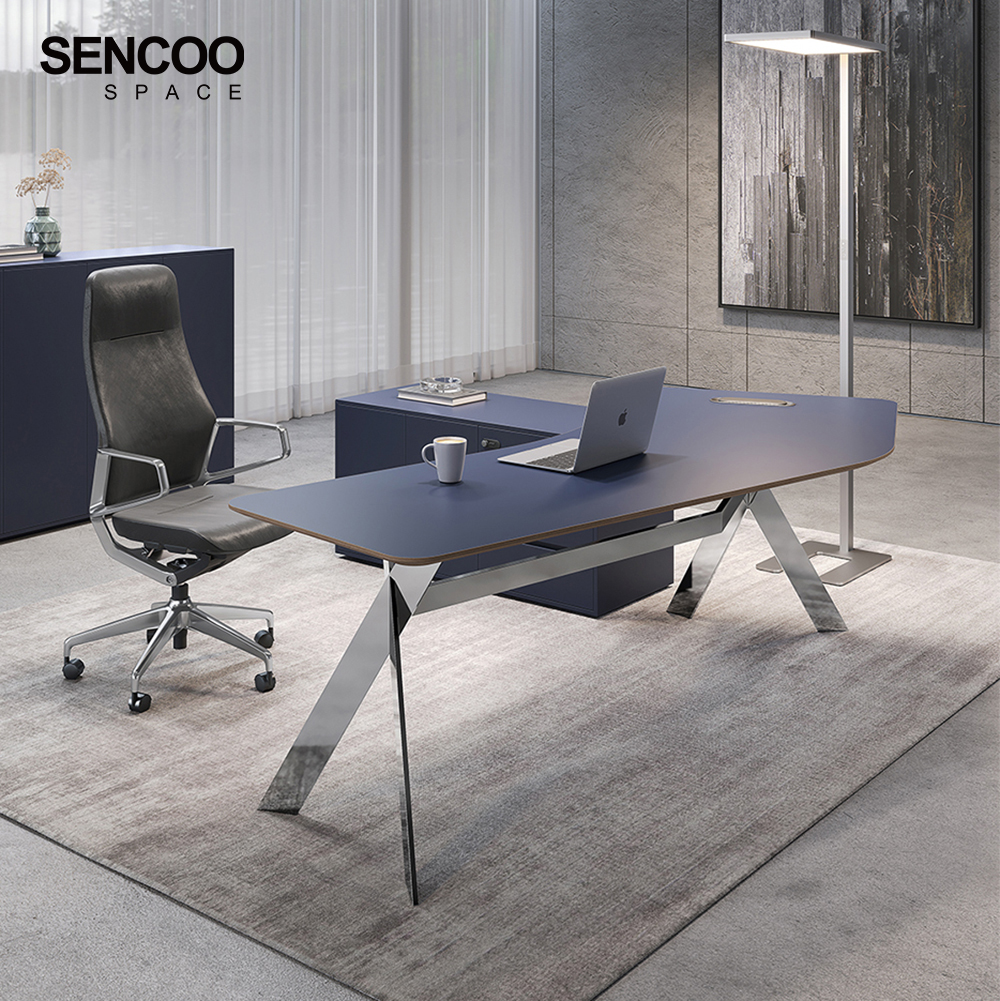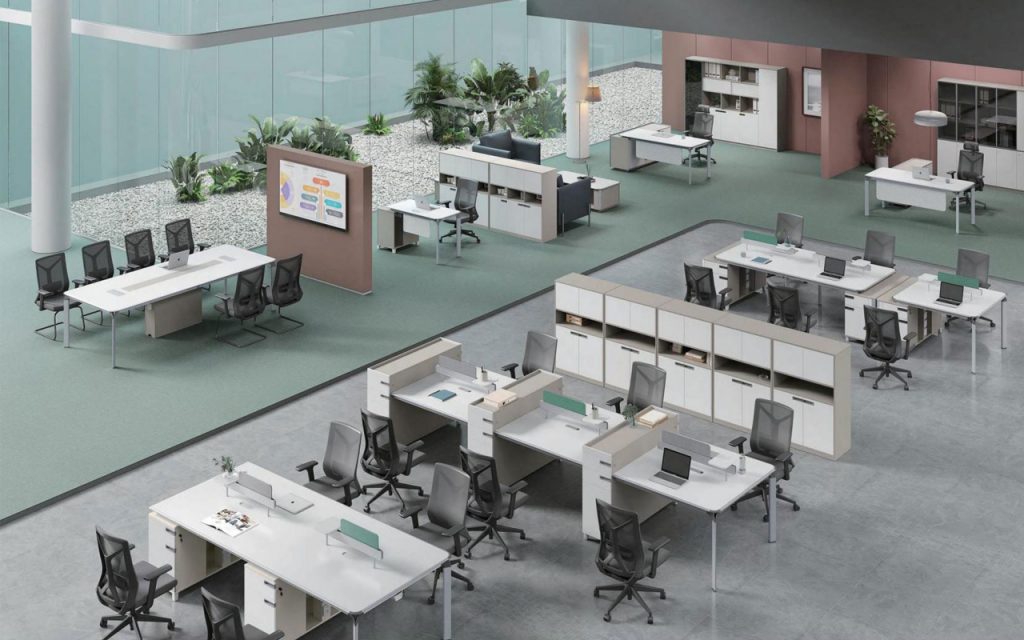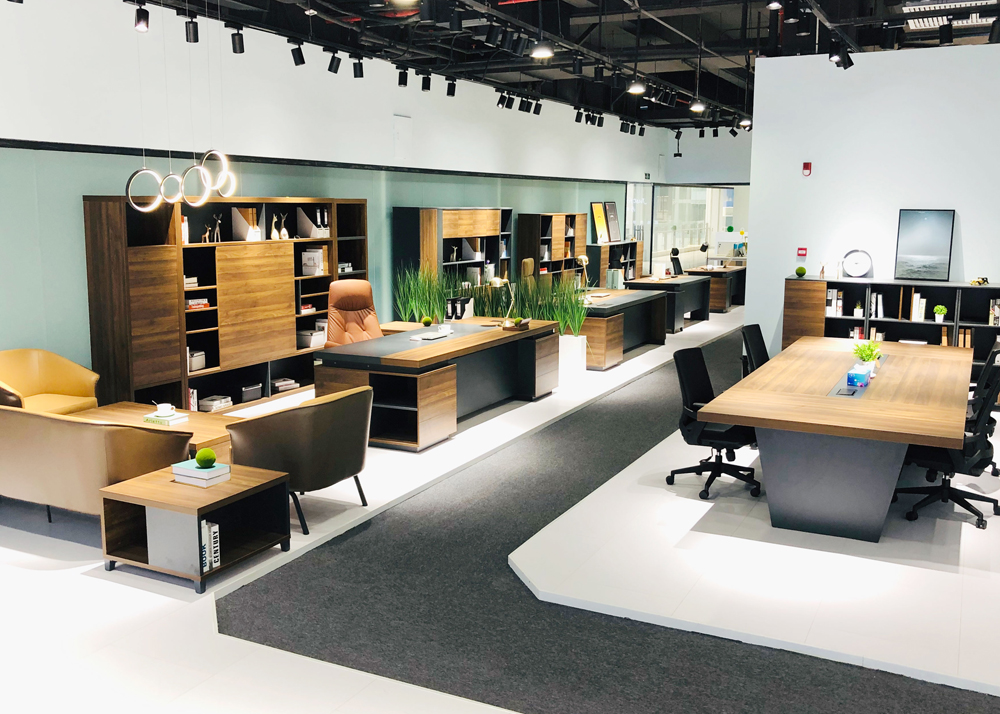With the rapid advancement of artificial intelligence technology and the growing emphasis on office efficiency and employee well-being, the integration of AI and smart office furniture is gradually becoming a major trend in modern workspaces. This fusion not only accelerates the intelligent transformation of work models but also creates a healthier, more efficient, and more human-centered work experience for employees.

1. Smart Office Desk Systems
Equipped with built-in sensors and AI algorithms, smart desks can automatically recognize user habits, adjust the height, lighting intensity, and even respond to voice commands for parameter settings. These systems can also track sitting and standing time, send activity reminders, and help prevent health issues caused by prolonged sitting.
2. AI-Assisted Office Chairs
Smart chairs automatically adjust support angles based on the user’s weight and sitting posture. Pressure sensors monitor posture, while apps or voice assistants provide correction suggestions. Some high-end models even offer massage and heating functions.
3. Smart Meeting Solutions
Conference tables embedded with AI voice assistants can transcribe speech, generate meeting minutes, and provide real-time translation. Combined with AI-powered cameras that auto-adjust based on the speaker, these solutions significantly enhance meeting efficiency and collaboration.
4. Intelligent Space and Resource Management
AI systems analyze space usage data to optimize office layout and automatically adjust lighting, temperature, and air quality, achieving energy savings and improved environmental conditions.
As demand for smart office solutions surges, market research predicts that the global smart office furniture market will grow at an average annual rate of over 10% in the next five years, with Southeast Asia and the Middle East showing particularly strong potential. However, this trend also faces the following challenges:
1. Lack of unified integration standards for hardware and software systems
2. The need for robust privacy and data security measures in the face of extensive data collection
3. A shift in enterprise expectations from short-term ROI to long-term value realization
The integration of AI and smart office furniture is reshaping the office ecosystem. It reflects not only a leap in technology but also a deeper alignment with human-centric and health-oriented office concepts. For businesses aiming to create modern workspaces, this is undoubtedly a future trend worth investing in and embracing.

